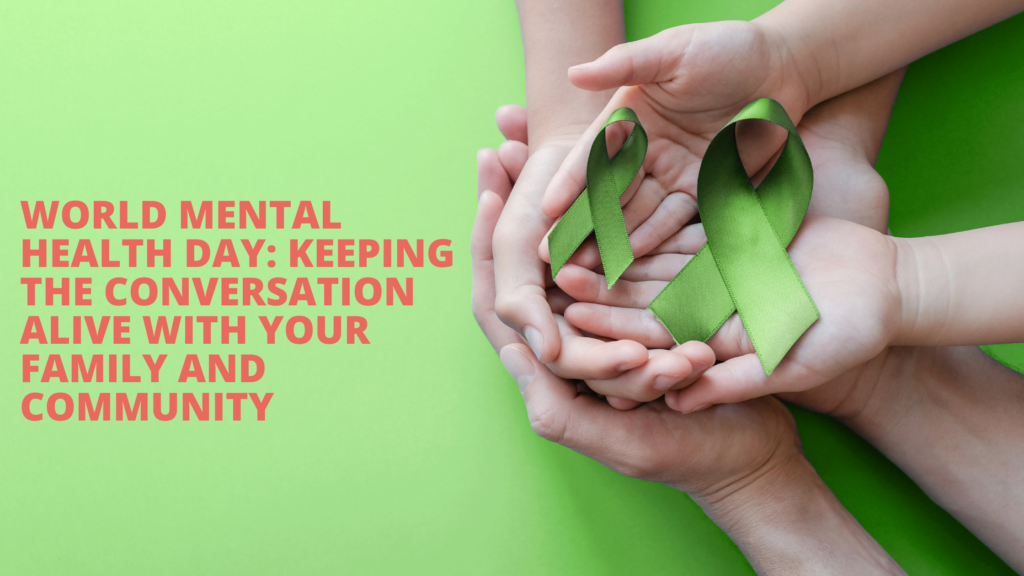
October 10th is World Mental Health Day, a vital moment to raise awareness and break the stigma surrounding mental health. Despite this recognition, mental health often remains a taboo subject—especially in our families. But why should that be the case?
According to Beyond Blue, 43% of Australians will experience a mental health condition at some point in their lives. These numbers show just how widespread mental health challenges are, yet many families still avoid asking one simple but critical question: “How’s your mental health?”
Why Mental Health Conversations Matter
Mental health affects everyone—some have a positive outlook, manage stress well, and feel genuinely happy. Others struggle with anxiety, depression, or overwhelming stress. By normalising conversations about mental health, we create space for those who are struggling to speak up.
At the dinner table, consider asking open questions like, “How is your mind feeling?”, “How are you coping with stress?”, or “What’s been on your mind lately?” It might feel a little uncomfortable at first, but these conversations could be life-saving. Don’t be afraid to also ask “How’s your mental health right now?” be direct, don’t beat around the bush.
Mental Health in Young People
Young people are particularly vulnerable. Here are some alarming statistics:
- 1 in 7 young Australians aged 4-17 experience a mental health disorder each year (Black Dog Institute).
- Suicide is the leading cause of death for Australians aged 15-24.
These figures highlight the importance of talking to our children about mental health early on. Starting these conversations when they are young normalises seeking help and expressing emotions.
Supporting Your Children—and Yourself
As parents, it’s not just important to ask our children how they’re doing; we also need to be prepared to support them. Sometimes, that means turning to additional resources. The Table Talk Project provides helpful tools for navigating these difficult conversations. If you or your children need extra support, visit our Get Support page. You’ll find valuable guidance to help you and your family through challenging times.
Talking about mental health isn’t just about starting conversations—it’s about being prepared to help, and knowing where to turn for guidance. The resources available are designed to help families manage mental health discussions effectively and compassionately.
A Personal Story: The Importance of Speaking Up
Mental health is personal to me. I lost my cousin Adam to suicide. A few months before his passing, we had talked about his mental health, and he assured me he was getting help. After he passed, I couldn’t help but wonder—could I have done more? Should I have checked in every day?
While we can’t control the outcomes, we can control our efforts to keep the conversation alive. We have a responsibility to check in on each other, especially those sitting around our dinner table. Though it might feel uncomfortable, these conversations can make a huge difference.
Make Mental Health Conversations a Priority
What can you do today? Ask the question. Whether it’s your child, partner, or friend, ask them, “How are you really doing?” Make mental health a regular topic, just like physical health. At The Table Talk Project, we believe that every conversation matters, and talking about mental health is no exception.
Our private Facebook group is another space where you can share your thoughts, seek support, and learn from others’ experiences. Join us today to keep the conversation going and build stronger, more open connections within your family.
Where to Get Help
If this blog has raised difficult feelings, or you know someone who is struggling, please reach out to these services for support:
- Lifeline Australia: 13 11 14
- Beyond Blue: 1300 22 4636
- Kids Helpline: 1800 55 1800
And remember, if you’re looking for additional resources to support your family, visit The Table Talk Project’s Get Support page. Let’s make mental health a normal, everyday conversation—one that can save lives.

